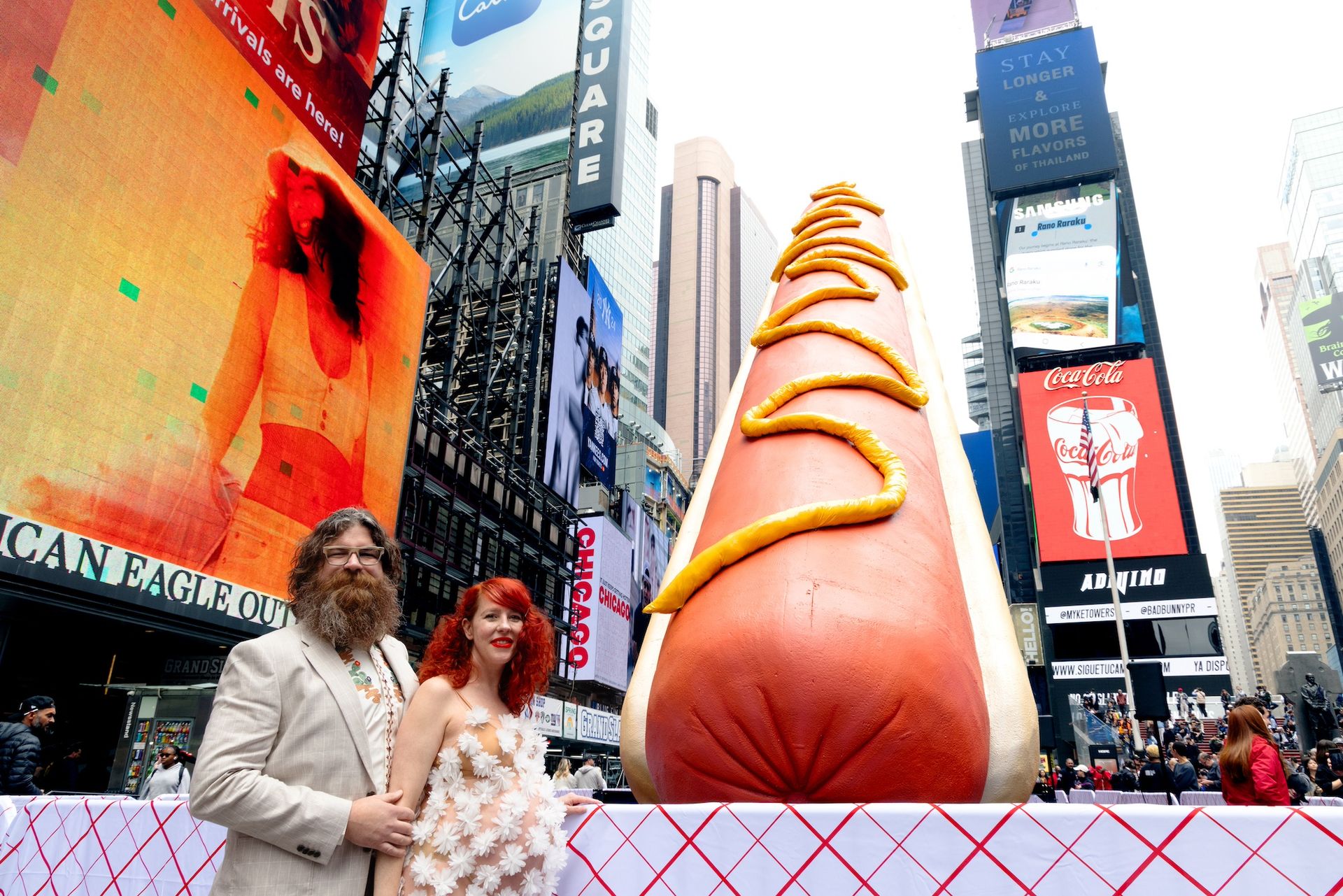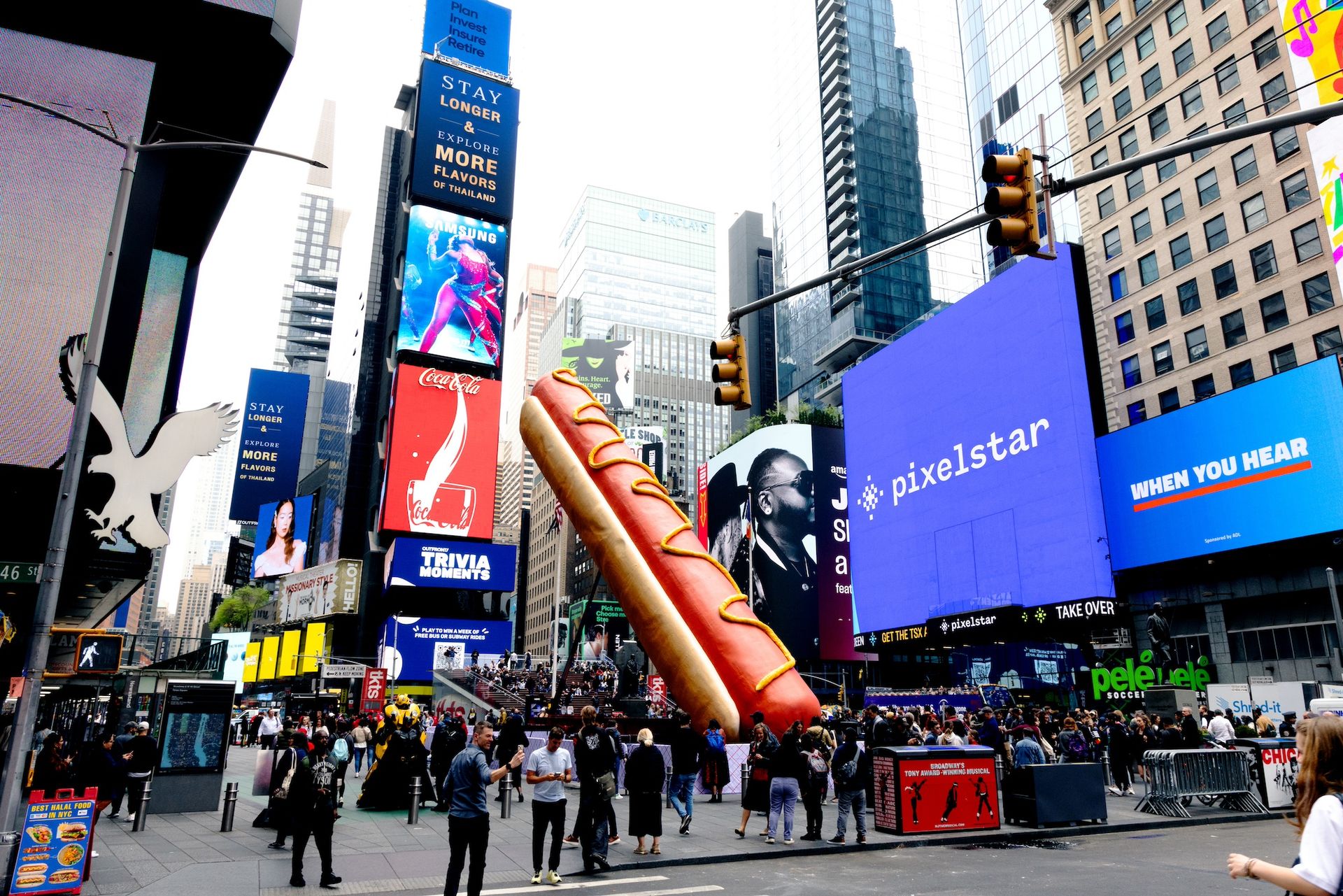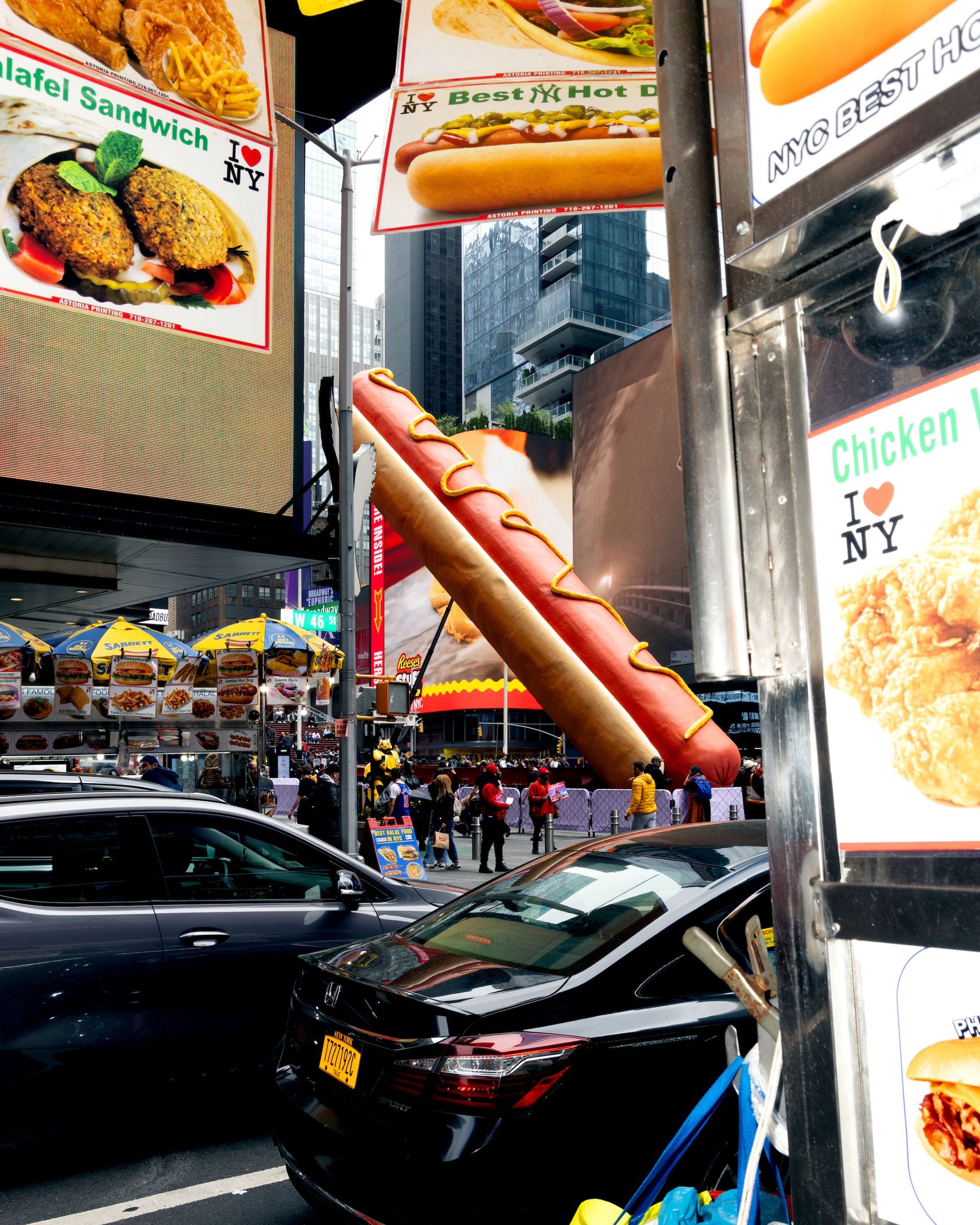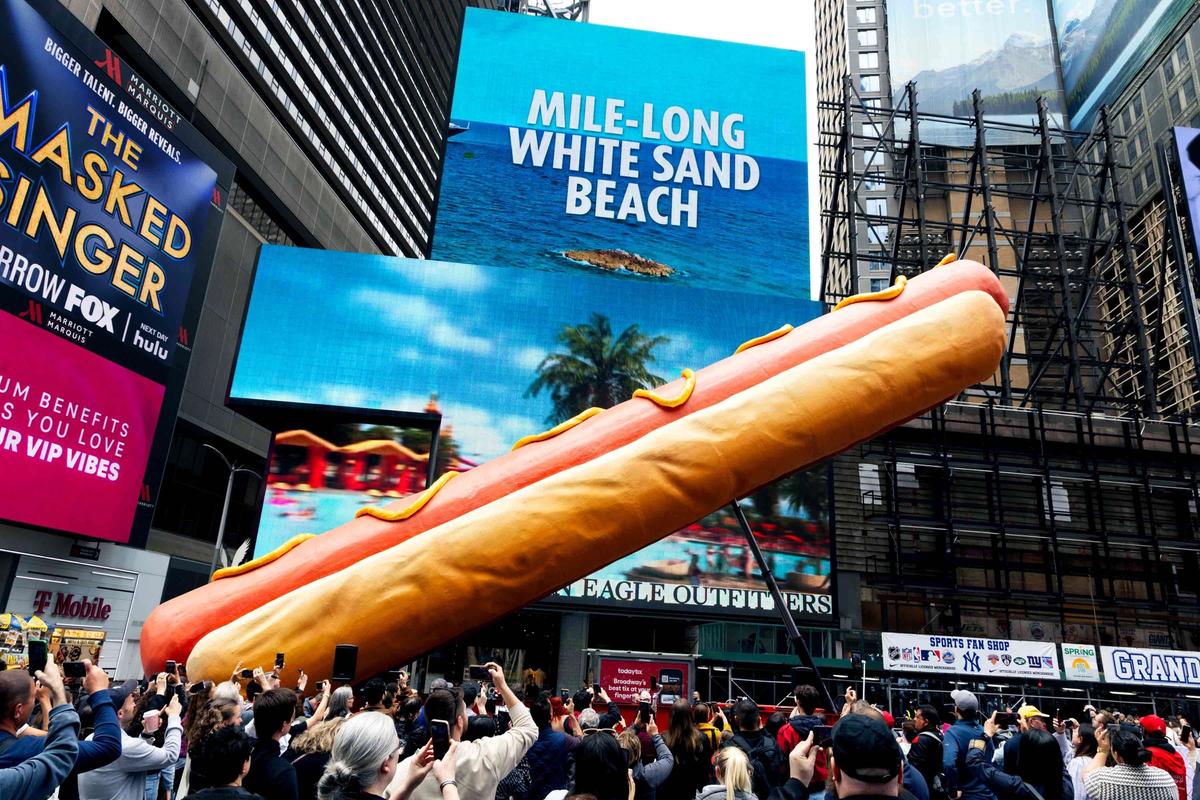Times Square might seem like the wurst place to savour the subtleties of contemporary art, but the Brooklyn-based artists Jen Catron and Paul Outlaw are confident their project for the chaotic Manhattan plaza is a wiener. The duo have erected a 65ft-long hot dog at the so-called “crossroads of the world”, complete with a massive bun, a fleshy frankfurter and a bright streak of mustard. Every day at noon, a hydraulic lift raises the giant junk food sculpture—Hot Dog in the City (2024)—into the air and confetti shoots out the top.

The artists Jen Catron and Paul Outlaw with their towering foodstuff Photo by Steven Molina Contreras
For the collaborative artists, this monument to America’s preferred processed meat product is a tongue-in-cheek tribute to and critique of all that the hot dog has come to symbolise, from a patriotic staple of barbecues and eating contests to an emblem of the country’s exploitative meat processing industry and corporate greed writ large.
“This is the sculpture that we deserve, this is what we’ve created as a society, and this is the pinnacle of culture in a lot of weird and funny ways,” Outlaw says. Catron adds: “The history of the hot dog and how it’s made, how it got to where it is today, it really is an American story, for better and often for worse—from the people who make it and the people who sell it to the people who eat it and the people who profit off it. Everything is wrapped up together in this item that is also fun and silly—but you start digging in and it starts getting a little darker.”

Jen Catron and Paul Outlaw, Hot Dog in the City, 2024 Photo by Steven Molina Contreras
The meaty spectacle, organised by Times Square Arts, is accompanied by a smorgasbord of public programmes. Among the events are a wrestling match with professional and drag wrestlers (3 May), a canine beauty pageant to determine “the hottest dog” (10 May), a qualifier for Nathan’s Famous International Hot Dog Eating Contest (17 May), and a symposium on hot dogs with authors, activists and street vendor representatives(9 June). Plus, as a testament to the bipartisan appeal of the hot dog, the artists are encouraging members of the public to vote on their favourite condiment, with the victor to be announced during the closing ceremony (13 June).
“The events are helping us to tell more of the story,” Outlaw says. “We have a giant hot dog sculpture, yes, and everybody can digest that fairly easily, but the events that are going to coincide with this are really helping to flesh out the story of why we’re doing this project and what’s important here.”

Jen Catron and Paul Outlaw, Hot Dog in the City, 2024 Photo by Steven Molina Contreras


